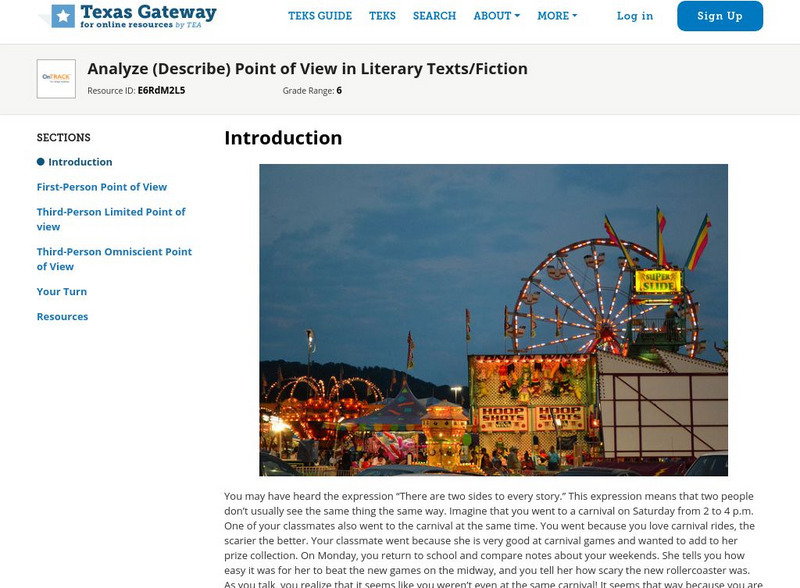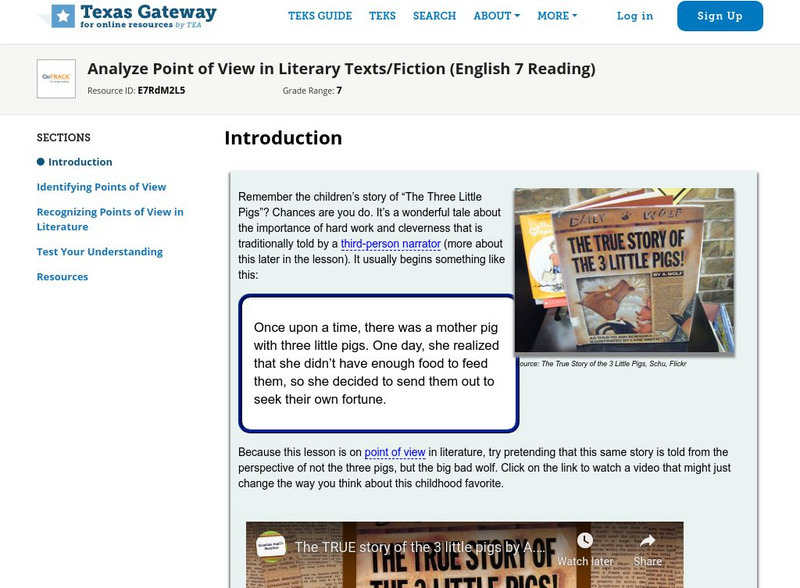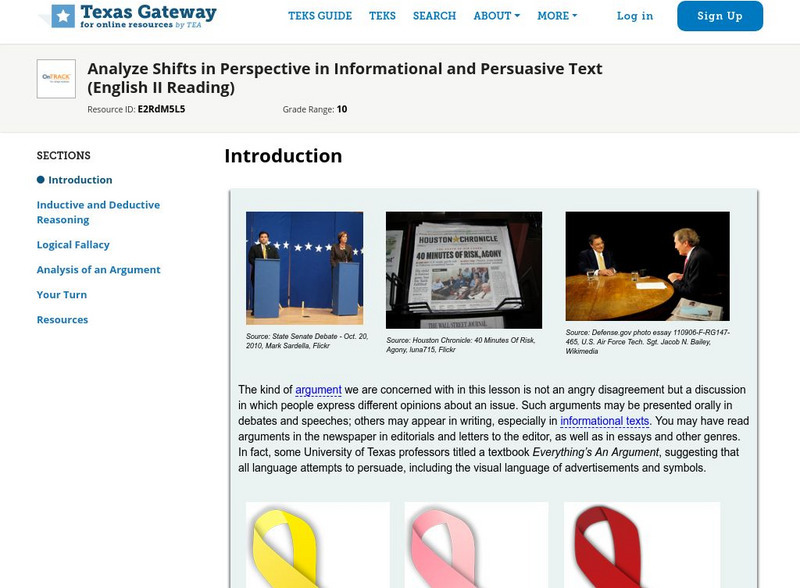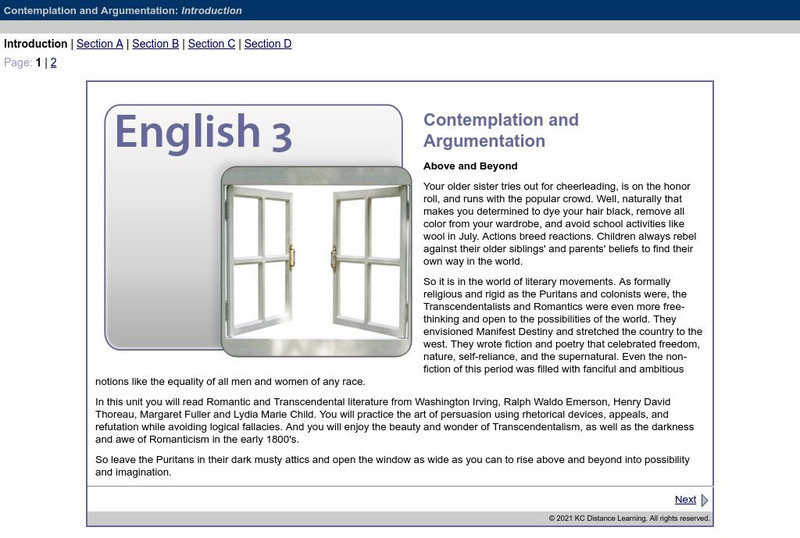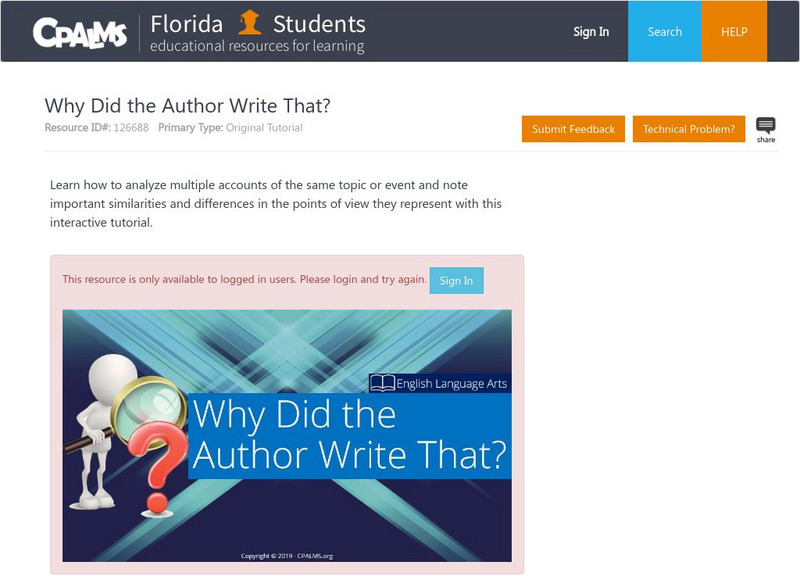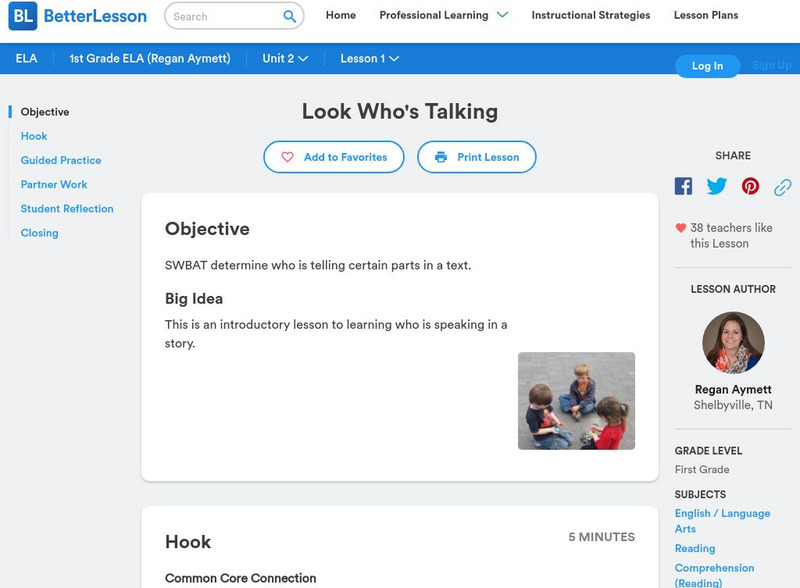Hi, what do you want to do?
Georgia Department of Education
Ga Virtual Learning: Contemporary Literature: Technology and the World Around Us
This is an introduction the a unit on the effects of technology on education, reading, researching and the world around us. It provides key terms, and essential questions concerning how technology changed the way we read, what Southern...
Georgia Department of Education
Ga Virtual Learning: Technology and the World:technology and Literature:part Two
This lesson focuses on the use of technology to assist students with historical background to a piece of literature; it can help to understand the literature and how people felt about the historical event. It features links to the short...
TeachEngineering
Teach Engineering: Tears in Rain
The goal of this activity is for students to develop visual literacy. They learn how images are manipulated for a powerful effect and how a photograph can make the invisible (pollutants that form acid rain) visible (through the damage...
Media Smarts
Media Awareness Network: Lesson Plan: How to Analyze the News [Pdf]
Lesson plan focusing on the importance of understanding how the news is a product with a specific scope, structure, slant and style at the forefront of its production.
Texas Education Agency
Texas Gateway: What's Your Point (Of View)? Practice 6 (English I Reading)
You will be able to identify point of view and understand how it shapes fiction.
Texas Education Agency
Texas Gateway: Point of View and Tone (English Ii Reading)
[Accessible by TX Educators. Free Registration/Login Required] Evaluate connections between forms of narration (unreliable narrator, omniscient, etc.) and tone in works of fiction.
Other
Sharpening Your Writing Skills
This handbook provides step-by-step modules to help you develop an appropriate business writing style. It also gives you rules for punctuation and "plain English." Answers are provided for exercises. PDF document.
CommonLit
Common Lit: "What Teachers Make" by Taylor Mali
CommonLit.org is a wonderful resource to use in a Language Arts classroom. Each text is accompanied by guided reading questions, assessment questions, and discussion questions. In addition, students can click on words to see the...
CommonLit
Common Lit: "Down the Rabbit Hole" by Lewis Carroll
CommonLit.org is a wonderful resource to use in a Language Arts classroom. Each story or article is accompanied by guided reading questions, assessment questions, and discussion questions. In addition, students can click on words to see...
Texas Education Agency
Texas Gateway:analyze (Describe) Point of View in Literary Texts/fiction
In this learning module, students will learn to analyze fiction told from the first-person, third-person limited, and third-person omniscient points of view.
Texas Education Agency
Texas Gateway: Analyze Point of View in Literary Texts/fiction
[Accessible by TX Educators. Free Registration/Login Required] In this lesson, students will learn to identify the primary points of view used in fiction and weigh the advantages and disadvantages of each.CCSS.ELA-Literacy.CCRA.R.6
Texas Education Agency
Texas Gateway: Analyze Point of View in Literary Texts/fiction
This lesson focuses on identifying points of view and recognizing points of view in literature.
Texas Education Agency
Texas Gateway: Analyze Shifts in Perspective in Informational & Persuasive Text
[Accessible by TX Educators. Free Registration/Login Required] In this lesson, students will read informational texts and identify varying perspectives in different arguments on the same topic. You will also analyze the reasoning and the...
Department of Defense
Do Dea: In the Beginning
This expansive self-guided unit hits on many objectives such as analyzing literature for author's purpose, figuring out the main idea/theme, understanding historical criticism, comparing and contrasting works from major historical...
Department of Defense
Do Dea: Contemplation and Argumentation
In this self-guided unit, you will read Romantic and Transcendental literature and you will practice the art of persuasion using rhetorical devices, appeals, and refutation while avoiding logical fallacies. By the end of the unit, you...
Department of Defense
Do Dea: Story, Identity, Unity
Delve into the art of storytelling in this self-guided unit. Multiple topics are covered such as literary genres, the 7 elements of fiction, figurative language, theme, characterization, etc. At the end of the unit, write your own flash...
Department of Defense
Do Dea: Music From the Ashes
This is a self-guided learning unit on the topic of poetry. Included are lessons, self-assessments, background information, learning activities, and related literature. Learn how to analyze poetry, appreciate figurative language, and...
Department of Defense
Do Dea: English 4; Utopia
A learning module asking students to analyze different types of texts, connect literature to events and experiences, use various writing skills, deconstruct media, practice grammar and vocabulary skills, and analyze point of view,...
CPALMS
Florida State University Cpalms: Florida Students: Why Did the Author Write That?
This tutorial explains point of view in informational texts. Students will learn how to analyze multiple accounts of the same topic or event and identify similarities and differences in different points of view.
Better Lesson
Better Lesson: Say What?
This is a practice lesson designed to excite sports fans in a unit about determining who is speaking in a story. The students practice this specific skill as the teacher models it in the hook. They get guided practice sorting and...
Better Lesson
Better Lesson: Look Who's Talking
This is an introductory lesson to learning who is speaking in a story. The students do this specific skill after the teacher models it in the hook. They get guided practice sorting and labeling who is talking in the guided practice and...
Better Lesson
Better Lesson: Examining Point of View
Who is telling the story? Students analyze whose eyes the reader is looking through. Students will learn that there is more to point of view than knowing who is telling the story. This lesson plan will teach them about the nuances of the...
Other
Penn. Department of Education:comparing and Contrasting Different Versions
Comparing and contrasting is a higher-level thinking skill promoted in the Common Core Standards leading to the ability to comprehend and analyze texts through various topics and genres. This activity on Comparing and Contrasting Stories...
CPALMS
Cpalms: Exploring the Future of Nasa
[Free Registration/Login Required] In this lesson, 8th graders analyze two nonfiction articles and a short video that look at NASA, changes to the space shuttle program, and future possibilities in the United States space program. They...





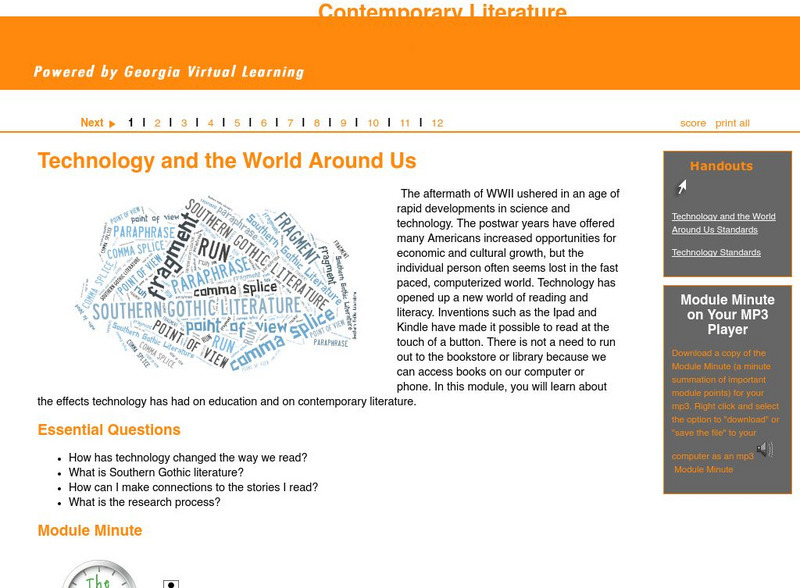
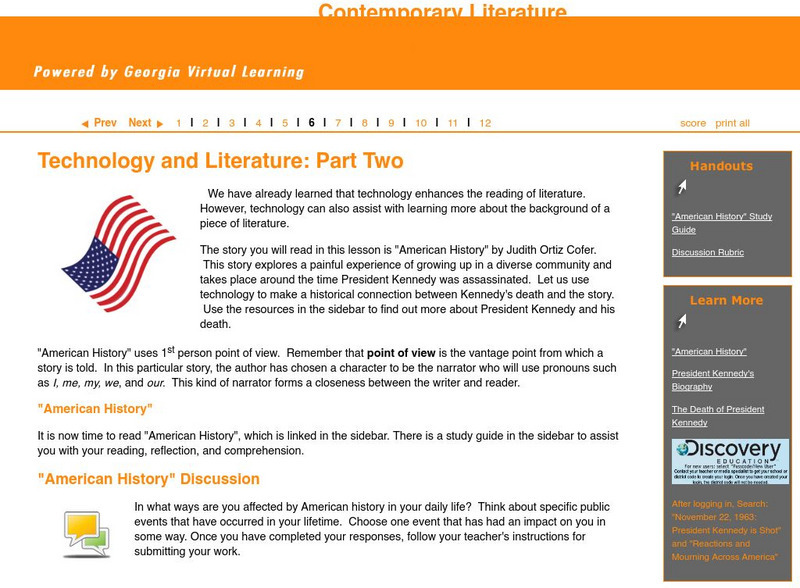

![Media Awareness Network: Lesson Plan: How to Analyze the News [Pdf] Lesson Plan Media Awareness Network: Lesson Plan: How to Analyze the News [Pdf] Lesson Plan](https://static.lp.lexp.cloud/images/attachment_defaults/resource/large/FPO-knovation.png)



